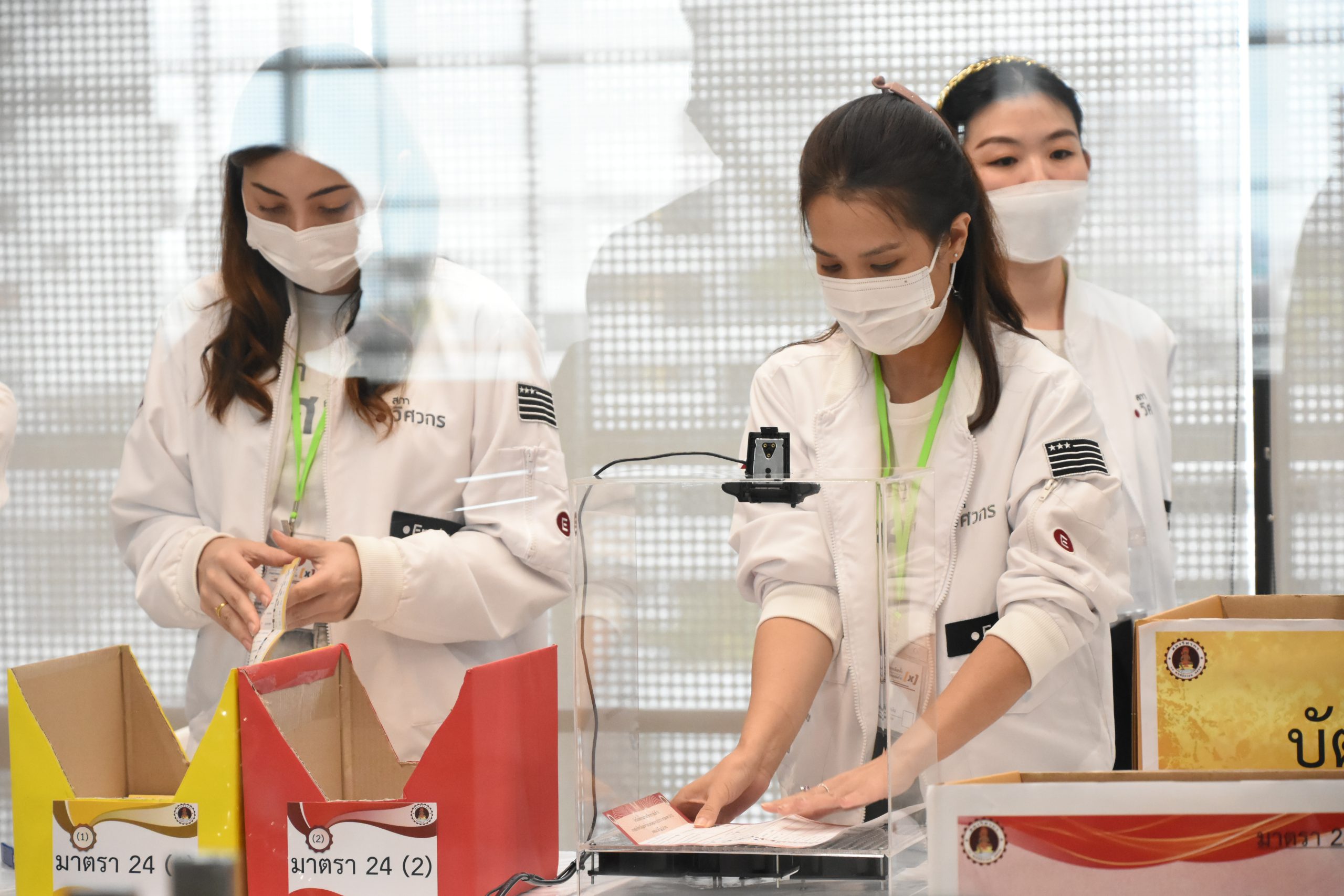
TABEE AS A SUSTAINABLE ORGANIZATION WITHIN THE COET
by Tatchai Sumitra, a member of TABEE Sub-committee
1.RATIONALE
Engineering education has undergone a tremendous change in the last two decades, the major one being the requirement for the engineering education to meet the Profession Recognized Standards. The International Standards demand for certain skills of new engineers and require that outcomes of graduates be assessed. To meet this challenge, an accreditation process for engineering education is needed in each jurisdiction in order to assure the quality of engineers working in the globalized Industry.
Recognized accreditation bodies are largely organized into two major groups according to different developments. The first group consists of accreditation agencies such as ABET(USA), JABEE(Japan), ABEEK(Korea), IEET(Taiwan) etc., which are independent accreditation bodies. The second group consists of independent accreditation units attached to engineering councils or institutions, such as Engineering Council UK, Engineers Canada, Engineering New Zealand, Engineers Australia, Engineers Ireland, Institution of Engineers Singapore, Board of Engineers Malaysia, Hong Kong Institution of Engineers, Engineering Council South Africa, Institution of Engineers Sri Lanka, Pakistan Engineering Council, etc. The two groups have one thing in common: they are all non-governmental, non-profit and independent organizations.
Most of the engineering accreditation bodies in developed economies are members of two major associations: Washington Accord (International Engineering Alliance) and ENAEE (European Network for Accreditation of Engineering Education). While the second is confined only to European nations, the first is a more open platform for all other nations around the world. There are of course other accreditation associations but they are of much lesser importance.
Being a member of the International Engineering Association, COET (Council of Engineers, Thailand) is naturally aiming at becoming a signatory (full member) of the Washington Accord in order to upgrade engineering education in Thailand to International Standards. COET has established TABEE as an arm to accredit engineering programs in Thailand. TABEE has started accrediting engineering programs since 2017. As of June 2020, TABEE has successfully accredited 7 programs from 3 universities, closely witnessed by several members of the Washington Accord at different occasion. With this positive accomplishment TABEE must proceed to expand and strengthen its organization to be a sustainable one that serve the Engineering community in Thailand.
This paper is an attempt to look at the way to achieve this goal.

RATIONALE
2.TABEE AS A SUSTAINABLE ORGANIZATION
International practice requires that an accreditation body be an independent and non-governmental organization. The most suitable position for TABEE is to be an accreditation unit within the COET because the COET is an engineering organization, with closer link to the Industry. The main objective of COET is the registration and regulation of engineers practicing in Thailand. With TABEE accreditation, the COET will meet the equally important objective of promoting the Engineering Education Research and Engineering Practice in the Country. If new engineers are better prepared for Industry, the regulation of engineering practice would be much better.
As a sustainable ORGANIZATION that comply with International practice, TABEE must aim at being a non-profit, non-governmental and independent organization within the Council of Engineers, Thailand. The VISION of TABEE is: a world class accreditation agency recognized by major international engineering accreditation associations such as the Washington Accord.
Most of the engineering accreditation bodies in developed economies are members of two major associations: Washington Accord (International Engineering Alliance) and ENAEE (European Network for Accreditation of Engineering Education). While the second is confined only to European nations, the first is a more open platform for all other nations around the world. There are of course other accreditation associations but they are of much lesser importance.
The MISSION of TABEE is: to accredit university and technical institution programs in the disciplines of engineering and engineering technology at the bachelor’s (and, eventually, at the master’s) degree levels.
Being part of the Council of Engineers Thailand, TABEE falls into this category of accreditation bodies: independent, non-governmental and non-profit organization.

TABEE AS A SUSTAINABLE ORGANIZATION
3.TABEE AS A SUSTAINABLE ORGANIZATION
There are eight important issues that TABEE must address before attaining sustainability. They are elaborated as follow:
3.1 INDEPENDENT DECISION BY TABEE WITHIN COET
Under the Engineer Act B.E. 2542, all activities done within COET are subjected to approval by the Council of Engineers Board, including TABEE’s. Since its inception TABEE has operated with an acceptable degree of independency. The Board has never interfered with TABEE decision regarding accreditation of engineering programs. To emphasize the point the Board has sent an official letter to the Minister of Higher Education, Science, Research and Innovation to assure the independence of TABEE within the COET. The fact has been acknowledged by the General Assembly of COET in June 2020.
3.2 CONTINUITY WITHIN COET
Another point of concern is the continuity of the TABEE passing from one Board to another. Under the above-mentioned Act the TABEE Sub-committee, like all other sub-committees, has to be re-appointed by the new Council Board every 3 year-cycle. A smooth transition is not automatic even though a disruptive transition is not likely to occur. As a solution, it is proposed that TABEE be restructured as a “Standing Committee” within COET, similar to the “Sub-committee on Ethics”. It can be done either by a change of the Engineers Act or by an addendum to COET Rules and Regulations.
3.3 INDEPENDENT DECISION BY TABEE WITHIN COET
TABEE must be relevant to the needs of engineering education and engineering practice in Thailand and in the modern World. Programs accredited by TABEE must satisfy the needs of Government, Industry and the students. TABEE accreditation exercises must help the universities to improve continuously on the programs.
3.4 PARTICIPATION AND RESPECT
TABEE must have participation and respect from all parties concerned: Government, universities and technical institutions, Industry, engineering societies, the Society etc. Voluntary participation by the four main parties are crucial and must be fostered.
Industry will participate with TABEE in many different ways. A TABEE Industrial Advisory Board is being set up to give a realistic vision of engineering profession development in the future and the skills required for new engineers. The Board will consist of high profile and prominent engineers and businessmen. The advices will help TABEE setting up a realistic accreditation policy.
Advisory Board for each engineering discipline will also help TABEE to develop better discipline requirements. Industry and engineering societies in specialized disciplines are expected to partake.
Most importantly, Industry will play a major role in accreditation by providing Program Evaluators who are real practicing engineers in that particular discipline.
Universities will take part in the accreditation process and will gain from it by having frank opinions from peers for the sake of a continuous improvement of the program.
The students will have their skills developed according to the needs of profession.
3.5 HIGH PERFORMANCE
TABEE must be a high-performance and lean organization based its operation on IT and modern technologies. TABEE’s secretariat must be small but highly qualified and well trained for the job. Advisors and Program Evaluators are solely volunteers from the Academia and Industry.
3.6 COST RECOVERY
TABEE must have an effective cost recovery operation in accrediting engineering programs. Since TABEE doesn’t have an annual budget and regular income, its sole revenues come from accreditation fees charged to the universities/technical institutions. The fee is set to cover the direct expenses and minimal overhead for each program. No profit is incorporated in the fee structure. It is estimated that the break-even point to provide TABEE with a financial sustainability is about 60 programs (out of the total 600+ programs offered in the Country) accredited.
3.7 TABEE FUND
Since TABEE didn’t have any initial fund or seed money to set up a workable and reliable accreditation organization, TABEE had to rely on the annual budget provided by the COET. This budget was very useful and timely but COET cannot provide this kind of funding on a regular basis. Some kind of financial sustainability is needed for TABEE to strengthen its capacity in the initial stage of its operation and to provide its service to Government, universities, the engineering profession and Industry. A practical approach to get this financial sustainability is to establish a “TABEE Fund”. This “TABEE Fund” will help TABEE setting up a functional organization and to develop most capable Program Evaluators by sending them to be trained at ABET USA, Taiwan, Engineers Australia, etc. It will also serve as a traveling fund for attending Washington Accord Meeting and for inviting “Mentors” and other full members from the “Washington Accord” to visit TABEE during the accreditation exercises, a mandatory activity before being accepted as a full member to the Washington Accord.
A well-coordinated campaign to seek donations from organizations, companies, individuals, etc. Should be designed. However, donations from organizations or individuals with potential conflict of interest should be avoided. A tentative target is estimated to be about 30 M฿ for the first 5 years of operation. After that the revenues from accreditation fees should be sufficient to provide TABEE with enough operating fund.
3.8 TRANSPARENCY AND ACCOUNTABILITY
TABEE must be a transparent and accountable organization. The operation of TABEE will be post-audited by an appropriate body to be set up when organization transformation in 1. is finalized.

TABEE AS A SUSTAINABLE ORGANIZATION
4.PROPOSED ORGANIZATION
A proposed organization chart for TABEE is shown below. In this figure TABEE is an official unit within COET and is supervised by COE Board in policies and general administrative matters. There is a “non-interference agreement” between COE Board and TABEE in accreditation decisions, meaning that TABEE is independent in accrediting engineering programs.
The TABEE fund will be set up mainly by donation from the Industry and may be administered jointly by COET/TABEE/Industrial Advisory Board. Most of the fund will be spent on capacity building and strengthening of the accreditation system in the initial phase. The operating fund for TABEE will come from accreditation fees.
As for personnel, it is anticipated that in the next 5-6 years TABEE may have about 60 programs accredited and the secretariat may require around 10 staffs. All others will be volunteers from the Academia and the Industry.
5.CONCLUSION
TABEE is an organization that provides service for the Government, the students and their parents, the Industry and the Society. It has to be a non-governmental, non-profit and independent organization. TABEE provides accreditation service that is a third party and peer review. TABEE is a true Kalayanamitr of the engineering programs and not a faultfinding body. It will provide the programs the chance to improve their operation continuously. It can be seen as a label that assures that the structure, content and outcomes of an engineering degree meets Industry Recognized International Standards. TABEE is self-supporting and belongs to everyone in the engineering profession, thus needs participation and understanding from all parties concerned.

CONCLUSION

